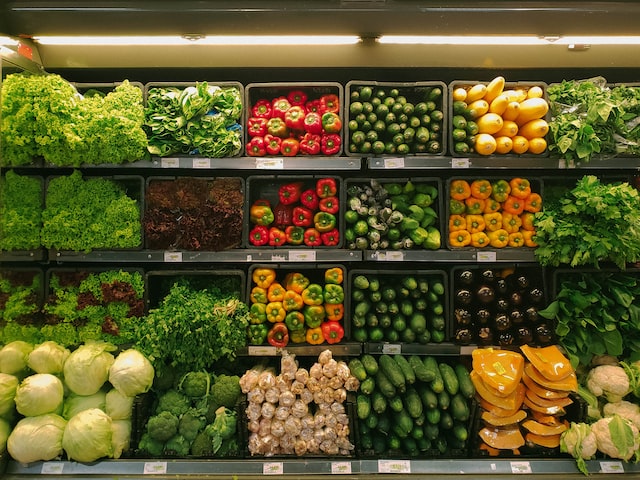It isn’t easy to balance your health and the environment when it comes to eating. In fact, with all the different food labels and types these days, iit can be downright difficult! For example, when it comes to non-GMO vs organic labels, what is even the difference? These labels are found on such a broad range of items, from onions to pre-packaged cookies, that it can be hard to determine what exactly distinguishes them from each other.
If you’ve been thinking about cashing in on these markets and selling a new food product, then it’s a good idea to know what makes each unique. To help you out, we’ve compiled a detailed breakdown of the differences between organic and non-GMO products.
Non-GMO
GMOs are organisms whose genes have been changed by artificial means in a laboratory. This process does not happen naturally; thus, many people are wary of eating GMOs because of potential health risks. Most GMO foods are developed to be insect-resistant using herbicides and pesticides, which help farmers prevent crop loss.
Non-GMO products exclude GM and non-GM ingredients, implying that while the product does not include GMOs, it is produced with conventional food manufacturing techniques.
Organic
“Organic” refers to an agricultural product’s method of manufacture, processing, and production. Become organic in the United States by being certified organic and meeting a stringent set of criteria.
Furthermore, organic products are inherently GMO-free. As far as organic foods are concerned, genetically modified organisms are never used in creating or handling them, and GMOs are directly inconsistent with the organic standards set by the USDA.
Non-GMO vs Organic
Although non-GMO products have a few benefits, they don’t match the standards of organic products. Non-GMO items might include harmful chemicals like artificial colors, antibiotics, and pesticides. The consensus regarding genetically modified organisms (GMOs) is that they harm food. However, there is no scientific evidence that GMOs are more harmful than regular food.
Non-GMO food items are more environmentally friendly than traditional choices. Organic foods verified during growing, harvesting, and production processes are the most environmentally friendly. The major distinctions between non-GMO and organic farming are:
- Non-GMOs limit the application of GMOs, but they also allow for the usage of pesticides and other chemicals.
- In addition to being pesticide-free, herbicide-free, and antibiotic-free, organic products are also GMO-free.
- Though organic products are more accessible now than ever, many people don’t realize that non-GMO foods are healthier for you.
What to Choose? Non-GMO or Organic
Non-GMO does not always mean organic, but all organic products are. Nonetheless, choosing organic foods is the most comprehensive choice regarding sustainable production and avoiding chemical pesticides and additives.
Non-GMO products and organic products do not inherently have more nutritional value. Choosing foods that contain fiber, essential nutrients, and are low in added sugar and saturated fat is essential when making food choices.
Final Thoughts
It was determined that organic food products are likely the best option for protecting the planet and avoiding artificial additives after careful analysis. But you may also want to consider the nutritional value of organic and non-GMO food options before deciding which is better for your business.
Not sure where to start with your new food product? Click here to book a complimentary consultation with the greater goods today!
